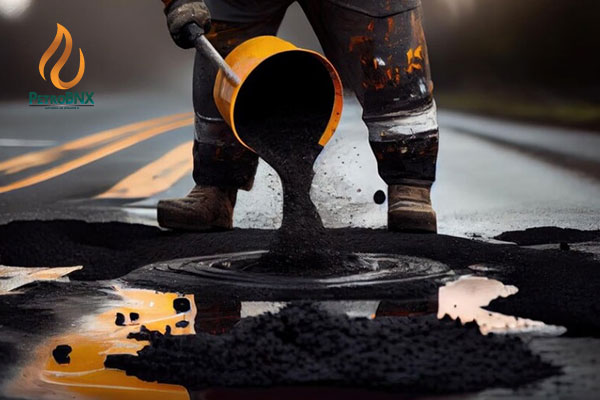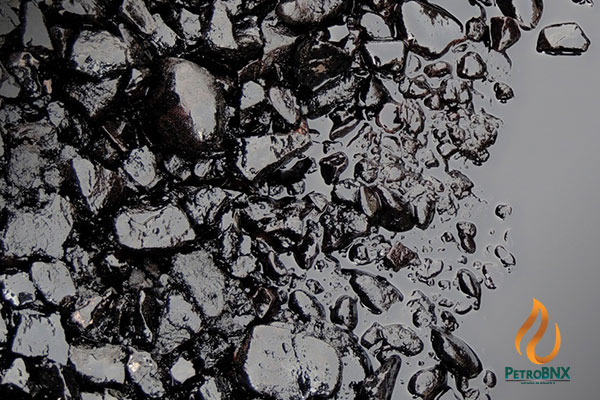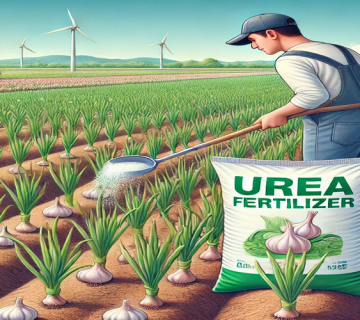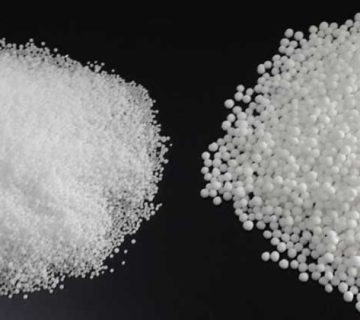Understanding Bitumen Uses is essential for appreciating its role in road construction and waterproofing projects. If the roofs of our homes lack proper insulation, they can allow heat and moisture to seep through. And what about our streets? Improperly asphalted roads can lead to bumps and cracks that damage our cars over time!
In such cases, high-quality, premium-grade bitumen can resolve many of these issues.
But what is bitumen, and how is it used in different industries?
Bitumen is a byproduct of crude oil distillation, produced in refineries. Its unique properties make it indispensable in many fields. From road construction and insulation to papermaking and marine constructions, the versatility of bitumen is remarkable.
In this article, we’ll explore the diverse applications of bitumen across industries, helping you understand why it’s such a vital material.
What is Bitumen?
What is Bitumen, Bitumen is a black, sticky, and viscous substance that exists in nature but is predominantly produced through industrial processes. While naturally occurring bitumen is rare, most of the bitumen we see in industries is synthetically manufactured in refineries. One of the most common Bitumen Uses is as a binder in asphalt for durable road surfaces.
Key Properties of Bitumen
- Adhesive: Bonds materials together effectively.
- Waterproof: Creates impermeable layers to prevent water penetration.
- Durable: Resistant to weathering and mechanical stress.
These properties make bitumen highly adaptable and widely used across various industries. Among the various Bitumen Uses, waterproofing roofs and foundations stands out as a critical application.
Uses of Bitumen in Different Industries

- Road Construction
Bitumen is primarily known for its role in road paving. Its adhesive and waterproof properties make it perfect for binding asphalt mixtures, ensuring durable and smooth road surfaces. - Construction and Insulation
- Roofing: Bitumen is used as a waterproofing agent for roofs, preventing leaks and insulation issues.
- Foundations: Ensures moisture-proof barriers for building foundations.
- Papermaking
Bitumen is used in the production of specialized waterproof paper products, such as industrial wrapping paper. - Paint Production
Its chemical resistance and durability make bitumen an essential ingredient in anti-corrosion paints for industrial structures. - Oil and Gas Industry
Bitumen acts as a protective layer for pipelines and other equipment, safeguarding them from corrosion. - Wastewater Systems
Bitumen is used to coat pipes and tanks in sewage systems, ensuring durability and leak-proof performance. - Electrical Insulation
Its resistance to electrical conductivity makes bitumen a reliable material for insulating electrical cables and equipment. - Marine Constructions
Bitumen is used in coastal and underwater projects, protecting structures from saltwater corrosion.
Various Bitumen Uses in Different Industries

Bitumen is a versatile material, offering a wide range of applications across industries. While most people associate bitumen primarily with road construction and insulation, its uses extend well beyond these areas.
In this section, we’ll explore how bitumen is used in road construction, asphalt production, and road repair, as well as highlight some of its other industrial applications. Industrial applications such as adhesives and sealants are also prominent Bitumen Uses.
1. Uses of Bitumen in the Road Construction Industry
One of the most prominent applications of bitumen is in road construction.
Thanks to its adhesive and waterproof properties, bitumen is ideal for binding asphalt materials together and creating smooth, durable, and water-resistant road surfaces.
Road builders use bitumen for two primary purposes:
- Producing asphalt
- Repairing roads
Let’s dive deeper into how bitumen is used in these critical areas.
Uses of Bitumen in Asphalt
Bitumen plays a central role in asphalt production. Its adhesive and waterproof characteristics make it perfect for creating road asphalt that can withstand environmental and mechanical stresses.
Here are the key methods and applications of bitumen in asphalt production:
- Hot Rolled Asphalt
- Engineers heat bitumen to high temperatures and mix it with aggregate to produce hot rolled asphalt.
- Cutback bitumen is often used for this purpose.
- Stone Mastic Asphalt (SMA)
- This asphalt, made using bitumen, is highly durable and deformation-resistant, making it ideal for heavy-traffic roads.
- Open-Graded Asphalt
- Known for its porous structure, this type of asphalt allows water to drain through, reducing the risk of vehicle skidding in wet climates.
- Tack Coat
- In some cases, engineers apply a tack coat of bitumen between old and new road layers to ensure proper adhesion. Bitumen acts as an adhesive in this process, enhancing the bond between layers.
- Spray Foam Insulation
- Engineers can also apply asphalt using spray foam insulation, spraying the bitumen directly onto the road surface.
- Slurry Seal
- This method involves a mixture of bitumen, aggregates, and water. When applied, it forms a protective layer that shields the road from cracks and impacts. For this purpose, MC bitumen is a suitable choice.
Bitumen in Road Repair
Bitumen isn’t just for building new roads—it’s also critical for road repair and restoration. Over time, roads develop cracks and fractures due to wear and tear. Exploring Bitumen Uses reveals its versatility in supporting infrastructure and construction industries.
In such cases, engineers use bitumen to:
- Fill cracks and fractures using a prime coat or chip seal bitumen.
- Apply a new layer of asphalt to reinforce durability and flexibility, extending the road’s lifespan.
Diverse Applications of Bitumen Across Industries
Bitumen’s versatility makes it an invaluable material across a range of industries. While most people recognize its use in road construction, its applications extend far beyond. Below, we explore nine major industries where bitumen plays a crucial role, highlighting its unique characteristics and benefits. The durability of roads and buildings often depends on efficient Bitumen Uses in their design.
2. Use of Bitumen in the Papermaking Industry

Bitumen has a surprising application in the papermaking industry. While it’s not used for producing everyday paper like A4 sheets, it plays a key role in the production of bitumen paper, which is primarily used in:
- Coarse fiber paper
- Kraft paper
These specialized papers are ideal for packaging and carton manufacturing, adding durability and resistance to moisture.
3. Use of Bitumen in Insulation Industries
One of the most well-known properties of bitumen is its waterproofing capability, making it an essential material in insulation industries for both commercial and residential applications.
Key Uses:
- Building Insulation:
- Slow-setting bitumen is applied to protect structures from moisture and heat.
- Waterproofing Layers:
- Bitumen’s water-resistant properties make it ideal for producing impermeable layers that guard against leaks and environmental damage.
- Pipe and Tank Insulation:
- A layer of bitumen protects pipes and tanks from moisture and corrosion, extending their lifespan.
4. Bitumen Application in the Paint Industry
Bitumen is also used in the paint industry, particularly for creating protective coatings for construction and metal structures.
Applications:
- Building Protection: Bitumen-based paints shield interiors and exteriors from moisture and water damage.
- Metal Corrosion Prevention: These paints are especially useful for protecting metal structures against environmental factors and chemical exposure.
5. Use of Bitumen in the Construction Industry
In the construction industry, bitumen’s waterproof and adhesive properties make it indispensable.
Common Applications:
- Flooring: RC bitumen is used to create waterproof membranes for floors.
- Roofing: Bitumen forms a protective layer on rooftops, preventing moisture seepage.
- Walls and Facades: It protects walls and facades from water, moisture, and weather damage.
- Parking Lots: Bitumen can be applied to create a durable surface for parking areas.
6. Application of Bitumen in the Oil and Gas Industry

The oil and gas industry relies on bitumen for its protective properties.
Examples:
- Storage Tanks: Gilsonite bitumen is used to coat the inside of tanks, protecting them from corrosion.
- Extraction Pipes: Bitumen-based coatings safeguard pipes against wear and chemical exposure.
7. Bitumen Uses in Water and Wastewater Systems
Bitumen is widely applied in water and wastewater systems to create moisture-resistant layers.
Applications:
- Pipes: Both the interior and exterior of pipes are coated with bitumen to prevent corrosion.
- Tanks: A protective layer of bitumen ensures tanks remain unaffected by water-induced damage.
8. Application of Bitumen in Electrical Insulation
In the electrical industry, bitumen is used as a protective material for insulating cables.
Benefits:
- Moisture Resistance: Bitumen shields cables from moisture and water.
- Durability: Its resistance to chemicals and environmental elements makes it perfect for protecting electrical components in challenging conditions.
9. Use of Bitumen in Marine Constructions
The marine construction industry heavily relies on bitumen for projects such as:
- Sea Channels
- Underwater Tunnels
- Ports and Dams
Application:
- Bitumen’s waterproofing properties ensure that marine structures maintain their integrity against erosive forces and constant water exposure.
Types of bitumen offered in PetroBNX
Stay Informed About Bitumen Pricing with PetroBNX

As highlighted in this article, bitumen has numerous applications across various industries, from construction to marine engineering.
If you’re in the bitumen trade or looking to stay updated on bitumen prices, visit PetroBNX. We offer real-time pricing information, expert insights, and a seamless experience for bitumen trading. Key Bitumen Uses include enhancing road durability, creating waterproof membranes, and producing industrial adhesives.
Contact Us Today
Ready to learn more about bitumen pricing, uses, or trading? Connect with our experts at PetroBNX for comprehensive solutions tailored to your needs. Understanding the full range of Bitumen Uses helps industries optimize its application in infrastructure projects.





No comment